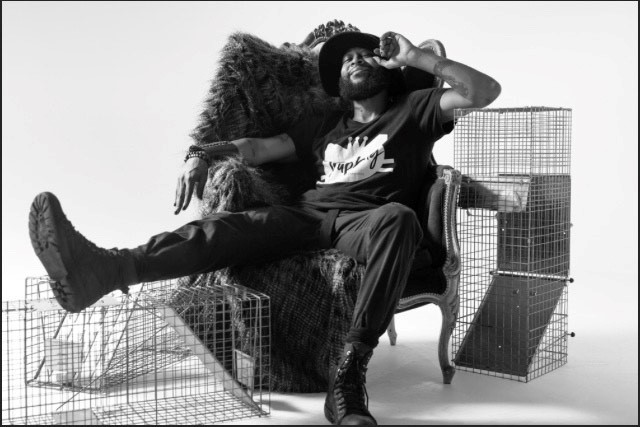Rapper Sterling Davis toured the country for years, building a career in hip-hop. But the musician made a bold pivot one day, deciding to put his energy behind another passion: cats. Davis reinvented himself as The TrapKing – as in, trap, neuter, and return – helping to humanely curb the overpopulation of stray cats. The lifelong cat lover also makes it his mission to change stereotypes about men in cat rescue, and to make the often white-dominated field of animal welfare an appealing pursuit in more diverse communities. The TrapKing joined “City Lights” senior producer Kim Drobes via Zoom to talk about how he transformed his career from rapping to trapping.
Things were going pretty well in Davis’s music career. “It was an uphill battle for me, and I finally was getting to the point where I was seeing the results in music that I wanted to see,” he said. He came home from tour for a break and looked for a low-stress gig to keep himself busy. “Being on tour, you learn really fast that in between tours, the breaks, you want to try to do something positive with your time. Because if not, you just spend money, get into trouble, waste time; it’s counterproductive.”
Suddenly the artist found himself pulled in a surprising new direction. “I was getting ready to go on a tour with somebody I really look up to, a guy named Tech N9ne, and it was going to be a popular tour. And in between that tour and waiting for the next tour is when I took the break. I was looking for something to do, and I saw on Craigslist an ad for helping scoop cat litter. I did not know that that would change my life.”
Beyond just litter that needed scooping, Davis found a new community and a new purpose. “Before, I never liked the politics of music or entertaining. I didn’t like that people would tell me ‘Well, you paint your nails,’ or, ‘You talk about stuff like this, which isn’t really masculine or hip-hop,’” said Davis. “When I got into this world of cat rescue, I realized what I was, was good. People thought it was cool to paint my nails, and my different outlook, the fact that I love cats – people loved it.”
But what might have seemed like a simple culture of caring about cats, of course, carried its own mess of identity politics. Davis often encounters gender stereotyping and bias, much like in the often “hyper-masculine” world of hip-hop. “I deal with those stereotypes and things like race more than I deal with cats and rescue, actually. I’ve gone to schools and I’ve had young men, young boys tell me that they thought all dogs were male, and all cats were female, and they really believed that” said Davis. “Putting that gender on an animal – as far as, a man should have a dog, or a female should have a cat – and the way we treat cats in this country, and the way we treat women in this country, it says a lot.” He added, “We’re struggling with cats right now, and we’re struggling for a lot of women to be respected and looked at a certain way in this country.”









